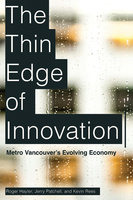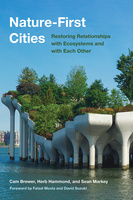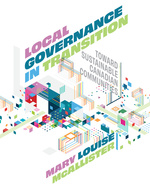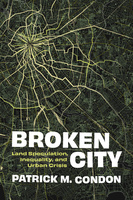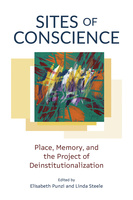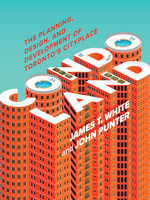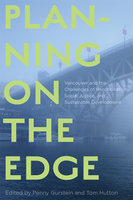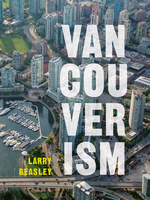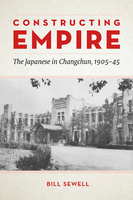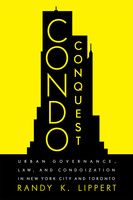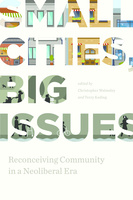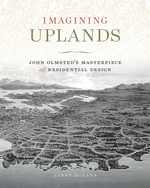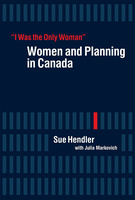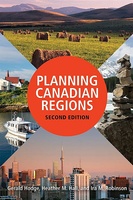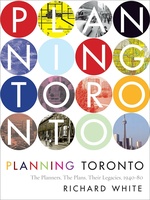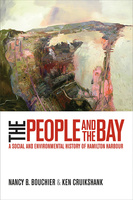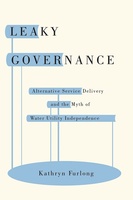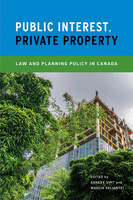The Thin Edge of Innovation
Metro Vancouver’s Evolving Economy
The Thin Edge of Innovation charts the origins, potential, and pitfalls of Metro Vancouver’s entrepreneur-led innovation economy, including the tremendous growth of high-tech, apparel, and consumer-oriented life-style businesses in the city.
Situated Practices in Architecture and Politics
Home Truths
Fixing Canada's Housing Crisis
With Canadians burdened by the world’s highest household debt after decades of failed housing policy, Home Truths: Fixing Canada’s Housing Crisis shows what went wrong, and how it can be fixed.
Nature-First Cities
Restoring Relationships with Ecosystems and with Each Other
Nature-First Cities recognizes nature as the lead architect in the most essential of restoration projects – our cities.
Local Governance in Transition
Toward Sustainable Canadian Communities
Local Governance in Transition presents a framework for conversations around technological, ecological, and economic challenges – and encourages innovative thinking for those interested in exploring sustainable solutions.
Broken City
Land Speculation, Inequality, and Urban Crisis
Broken City argues that skyrocketing urban land prices drive our global housing market failure – so, how did we get here, and what can be done about it?
Sites of Conscience
Place, Memory, and the Project of Deinstitutionalization
Sites of Conscience charts the importance of public engagement with histories, memories, and lived experiences of institutions in forging new directions in social justice with and for disabled people and people experiencing mental distress, in a context where deinstitutionalization has failed to fully recognise, redress, and repair the ongoing impacts of institutions.
Condoland
The Planning, Design, and Development of Toronto’s CityPlace
In an era of frantic vertical urbanization known as “condoism,” Condoland explores the planning and design of Toronto’s CityPlace, one of North America’s largest residential development projects – and reveals what can happen when the real estate industry comes to dominate city planning.
Crossing Paths Crossing Perspectives
Urban Studies in British Columbia and Quebec
The Heart of Toronto
Corporate Power, Civic Activism, and the Remaking of Downtown Yonge Street
From the sidewalk to City Hall, in the corporate boardroom, and around the kitchen table, The Heart of Toronto traces the power dynamics and projects that have transformed downtown Toronto.
Quietly Shrinking Cities
Canadian Urban Population Loss in an Age of Growth
The first major study of its kind in Canada, Quietly Shrinking Cities examines the conceptual and empirical evolution of Canadian urban population loss.
Neighbourhood Houses
Building Community in Vancouver
Neighbourhood Houses documents how the neighbourhood house model, a century-old type of community organization, can help overcome isolation in urban neighbourhoods by creating welcoming places.
Evaluating Urban and Regional Plans
From Theory to Practice
The first text of its kind in Canada, Evaluating Urban and Regional Plans provides both a theoretical foundation and pragmatic guidance for plan evaluation.
Digital Lives in the Global City
Contesting Infrastructures
Digital Lives in the Global City asks how digital technologies are remaking urban life around the world, from migrant work in Singapore to digital debt in Toronto, illegal buildings in Mumbai, and targeted policing in New York.
Designing Streets for Kids
Building on the success of their Global Street Design Guide, the National Association of City Transportation Officials (NACTO)-Global Designing Cities Initiative (GDCI) Streets for Kids program has developed child-focused design guidance to inspire leaders, inform practitioners, and empower communities around the world to consider their city from the eyes of a child.
Changing Neighbourhoods
Social and Spatial Polarization in Canadian Cities
Changing Neighbourhoods offers revealing insights into the way that Canadian cities have grown increasingly unequal and polarized since 1980, identifying the causal factors driving neighbourhood change and their troubling implications.
Planning on the Edge
Vancouver and the Challenges of Reconciliation, Social Justice, and Sustainable Development
Planning on the Edge explores the reality behind the rhetoric of Vancouver’s reputation as a sustainable city and paves the way for developing Vancouver and its region into a place that is both economically sustainable and socially just.
Vancouverism
This is the remarkable story, told by a key insider, about Vancouver’s dramatic transformation from a typical mid-sized North American city into an inspiring world-class metropolis celebrated for its liveability, sustainability, and vibrancy.
Constructing Empire
The Japanese in Changchun, 1905–45
While other studies focus on the role of diplomats and the military, Constructing Empire demonstrates that building the Japanese empire also required civilian participation.
Condo Conquest
Urban Governance, Law, and Condoization in New York City and Toronto
This eye-opening study shows how the condo, developed to meet the needs of a community of owners in cities in the 1960s, has been conquered by commercial interests.
Small Cities, Big Issues
Reconceiving Community in a Neoliberal Era
If local governments accept a social agenda as part of their responsibilities, the contributors to Small Cities, Big Issues believe that small cities can succeed in reconceiving community based on the ideals of acceptance, accommodation, and inclusion.
Imagining Uplands
John Olmsted's Masterpiece of Residential Design
Imagining Uplands recounts the efforts of the American landscape architect John Charles Olmsted to create an ideal and enduring subdivision on the suburban frontier of Victoria, British Columbia.
“I Was the Only Woman”
Women and Planning in Canada
A compelling new perspective on Canada’s planning history that offers a counter-narrative to the “official” story of the profession, one that has generally overlooked the contributions of women and the Community Planning Association of Canada.
Planning Canadian Regions, Second Edition
This much-anticipated second edition builds on lessons learned from the past and links them to current trends already shaping the future of regional planning in Canada.
Planning Toronto
The Planners, The Plans, Their Legacies, 1940-80
This lavishly illustrated book will stand as the definitive history of Toronto postwar planning and of the impact that planning has had on the city and its surrounding metropolitan area.
The People and the Bay
A Social and Environmental History of Hamilton Harbour
This engaging history brings to life the personalities and power struggles that shaped how Hamiltonians used their harbour and, in the process, invites readers to consider how moral and political choices being made about the natural world today will shape the cities of tomorrow.
Leaky Governance
Alternative Service Delivery and the Myth of Water Utility Independence
Municipalities face important water supply challenges. One response has been to render utilities independent from municipal government through alternative service delivery. Both water management and municipal governance must be strengthened to meet contemporary water supply needs.
Public Interest, Private Property
Law and Planning Policy in Canada
Through selected case studies, this volume explores the complex interplay between the public interest and private property rights in Canadian urban-planning policy.
Tactical Urbanism
Short-term Action for Long-term Change
The Proposal Economy
Neoliberal Citizenship in “Ontario’s Most Historic Town”
This book, based on extended ethnographic and multi-method research in a small town in Canada, adds new perspectives on the ways that citizenship is produced and reproduced under conditions of neoliberalism.
Public Produce
Cultivating Our Parks, Plazas, and Streets for Healthier Cities, Revised Edition
An updated look at the advantages and possibilities of urban agriculture in public spaces.
Segmented Cities?
How Urban Contexts Shape Ethnic and Nationalist Politics
This book examines how urbanization and pluralization are shaping the world’s cities and what can be done to encourage integration and minimize ethnic and nationalist tensions.
Indigenous in the City
Contemporary Identities and Cultural Innovation
This book explores the complexity of urban Indigeneity in Canada and internationally and positions urban areas as places of Indigenous resilience and cultural innovation.
Land Politics and Livelihoods on the Margins of Hanoi, 1920-2010
An engaging study of the rapid urbanization of a former village subsumed by the expanding city of Hanoi.
How to Study Public Life
Methods in Urban Design
The Hidden Potential of Sustainable Neighborhoods
Lessons from Low-Carbon Communities
Measuring Urban Design
Metrics for Livable Places
Inventing Stanley Park
An Environmental History
A timely exploration of how the interplay between attitudes toward nature, parks policy, public memory, and the force of nature helped shape one of the world’s most famous urban parks.
Designing Suburban Futures
New Models from Build a Better Burb
Social Transformation in Rural Canada
Community, Cultures, and Collective Action
A series of stories, ideas, and insights into the social dynamics of change within rural Canada that help communities forge new ways of understanding and relating to each other and to the broader world.
Planning as if People Matter
Governing for Social Equity
This book goes beyond theory to give real-world examples of how better planning can level inequities.
Stewardship of the Built Environment
Sustainability, Preservation, and Reuse
Stewardship of the Built Environment shows how rehabilitating and reusing existing structures holds untapped potential for achieving sustainable communities.
The Shape of Green
Aesthetics, Ecology, and Design
The Shape of Green argues that beauty is inherent to sustainability, for how things look and feel is as important as how they’re made.
Climate and Conservation
Landscape and Seascape Science, Planning, and Action
Climate and Conservation offers readers tangible, place-based examples of projects designed to protect large landscapes as a means of conserving biodiversity in the face of the looming threat of global climate change.
Green Cities of Europe
Global Lessons on Green Urbanism
With Green Cities of Europe, Beatley offers the North American planning community not only a vision of holistic sustainability, but a clear guide to accomplishing it at home.
Human Transit
How Clearer Thinking about Public Transit Can Enrich OurCommunities and Our Lives
This book explains the fundamental geometry of transit that shapes successful systems; the process for fitting technology to a particular community; and the local choices that lead to transit-friendly development.
City Rules
How Regulations Affect Urban Form
City Rules offers a challenge to students and professionals in urban planning, design, and policy to change the rules of city-building, using regulations to reinvigorate, rather than stifle, our communities.

